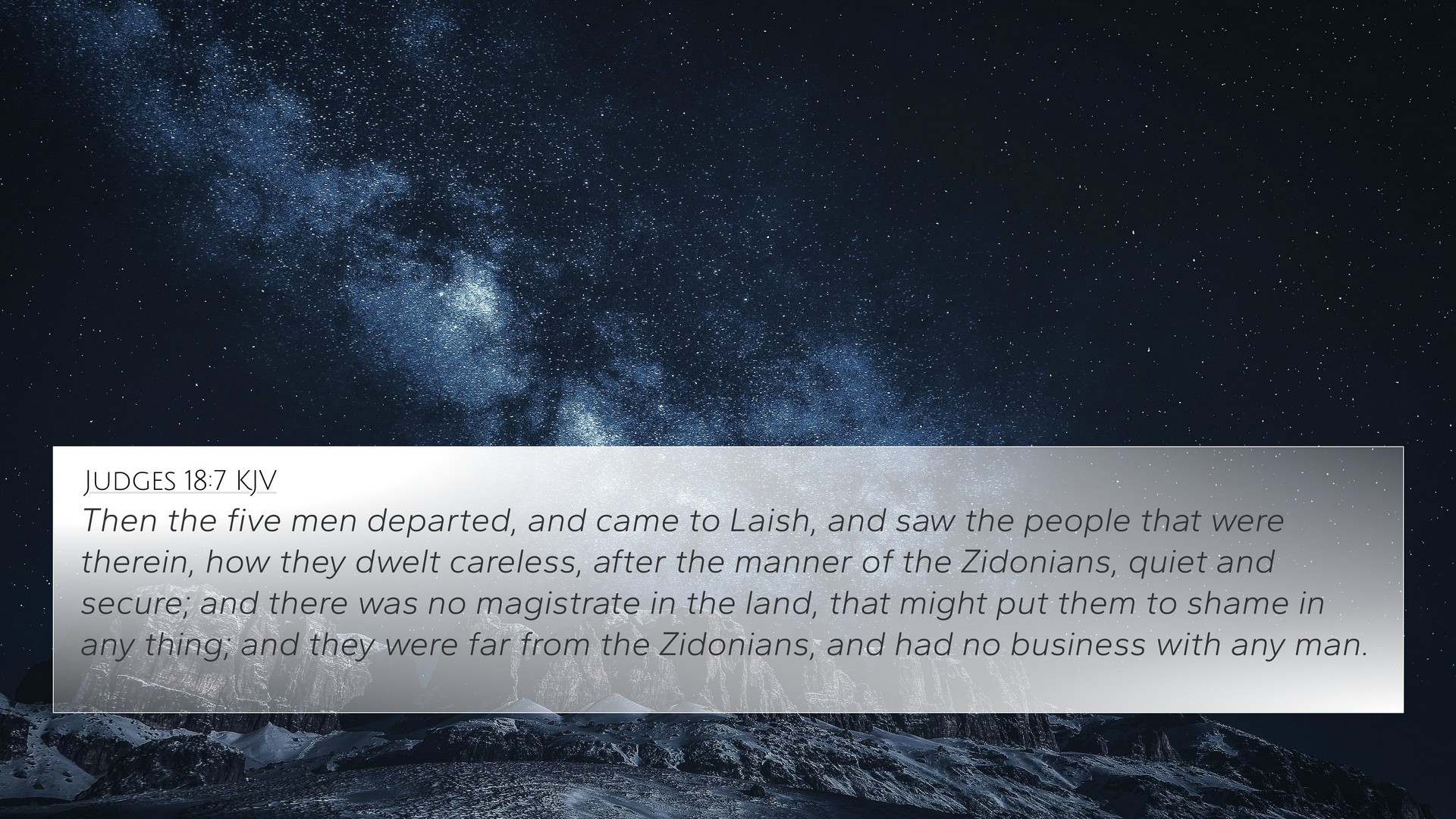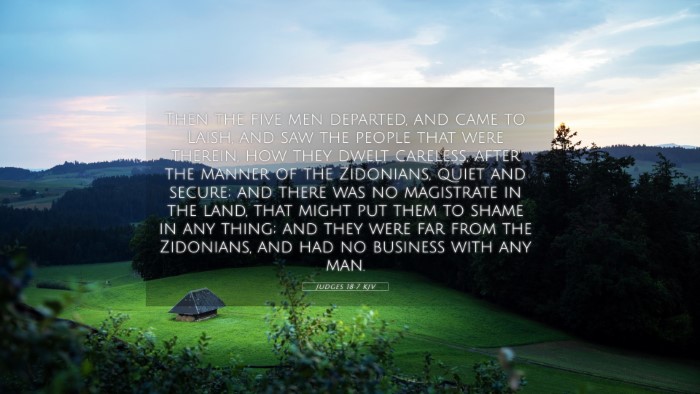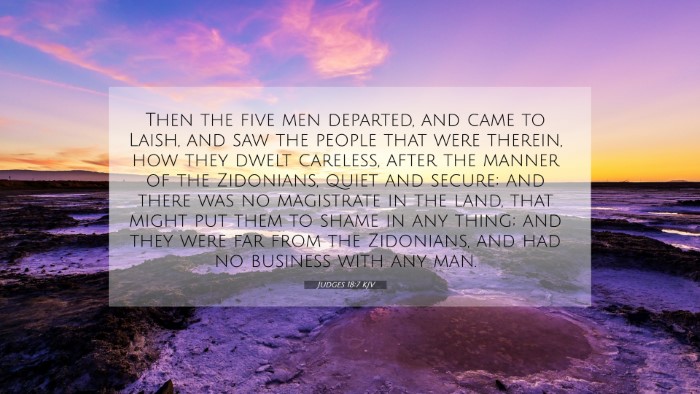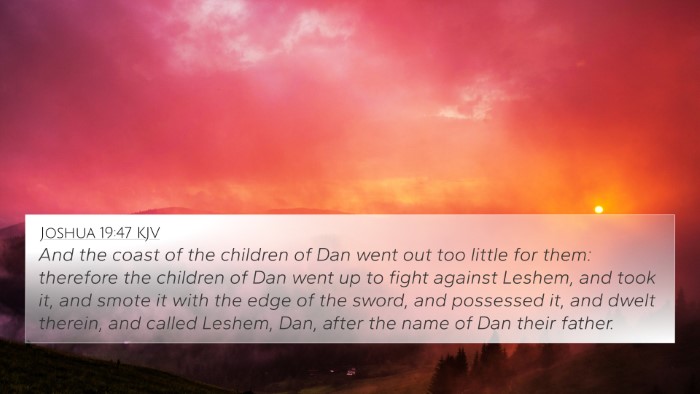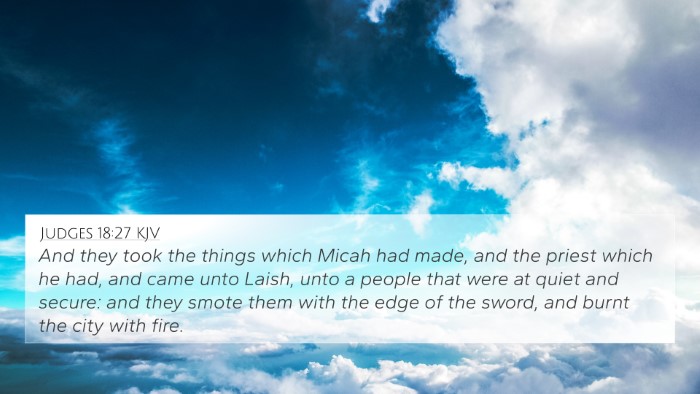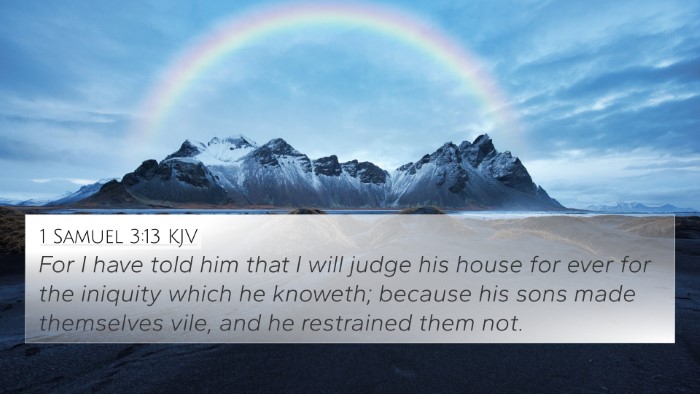Understanding Judges 18:7
In Judges 18:7, we encounter a critical moment in the story where the tribe of Dan sends out spies to explore the land and discover a place to settle. This verse highlights themes of exploration, guidance, and the historical actions of the Israelite tribes.
Verse Text
"Then the five men departed and came to Laish and saw the people that were therein, how they dwelt careless, after the manner of the Zidonians, quiet and secure; and there was no magistrate in the land, that might put them to shame in anything; and they were far from the Zidonians, and had no business with any man."
Commentary Insights
- Matthew Henry: Henry emphasizes the spiritual implications of this verse; the carelessness of the Laish inhabitants reflects a lack of vigilance in faith. This encourages believers to be mindful of their spiritual security.
- Albert Barnes: Barnes notes the strategic importance of Laish due to its vulnerability. He suggests that this moment illustrates the lure of settling in ungoverned regions and the risks associated with a secular lifestyle.
- Adam Clarke: Clarke provides cultural context, revealing that the Zidonians were known for their peaceable nature. This contrast serves to highlight the dangers of complacency among the tribes of Israel and their reliance on external security.
Thematic Connections
This verse illustrates several interconnected themes within the scripture:
- Security and Complacency: The inhabitants of Laish were described as careless, indicating the dangers of overconfidence in one's security.
- Exploration and Discovery: The sending out of spies is parallel to various instances in the Bible where God’s people discover or claim lands (e.g., the exploration of Canaan).
- Judgment and Accountability: The lack of magistrates is indicative of a failed moral structure, calling to mind God’s expectations for justice within communities.
Cross-References
Judges 18:7 shares connections with several other biblical passages, enhancing our understanding of the text:
- Numbers 13:1-2: Moses sends spies into the land of Canaan.
- Joshua 2:1: Rahab hides the spies sent by Joshua.
- 1 Chronicles 12:23: Reference to the various tribal divisions and their suitability for settlement.
- Deuteronomy 12:10: Instructions for Israel to find a place of rest.
- Proverbs 1:32: The consequences of security in thoughtless living.
- Isaiah 47:8: Warnings about complacency and false security.
- Matthew 24:38-39: Insights on the days leading up to the judgment and human complacency.
Conclusion
Judges 18:7 serves as a reflection on the behaviors of both the Israelites and the inhabitants of Laish. The verse invokes important questions about security, vigilance, and moral accountability in communities. The insights from scholars enhance our grasp of the theological implications embedded in this narrative, encouraging deeper reflection on the interconnectedness of Scripture.
Tools for Further Study
For those seeking to explore these themes deeper or find connections between verses, consider utilizing:
- Bible concordance for thematic searches.
- Bible cross-reference guide for locating related scriptures.
- Cross-reference Bible study tools to analyze connections systematically.
- Online resources for comprehensive Bible cross-references.
Final Thoughts
The study of Judges 18:7 and its surrounding texts encourages us to think critically about the foundations of our own lives, our security, and the faithfulness we exhibit in our walk with God. By recognizing the themes and cross-references, we participate in a deeper inter-Biblical dialogue, enriching our spiritual understanding.
